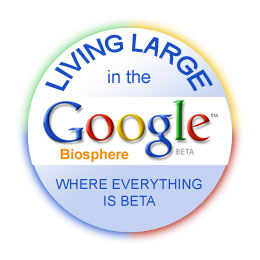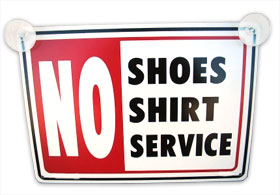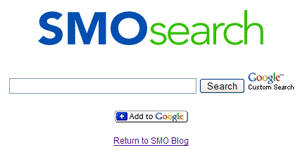Friday, April 20th, 2007
 I don’t want to make this blog about all Google, all the time, but I’m pretty confident in saying that it is going to be mostly about Google in the not too distant future.
I don’t want to make this blog about all Google, all the time, but I’m pretty confident in saying that it is going to be mostly about Google in the not too distant future.
The reason for this is that I’m convinced that Google is putting the pieces in place not just to build a social media site, but to become a social media supernetwork.
Recent moves and acquisitions by Google make it clear that Google is not just focused on “organizing the world’s information”, as stated in their mission statement. It’s about organizing the world’s conversation.
Continue Reading »
Monday, April 16th, 2007
 I haven’t had the time in the past couple days to really digest the attempted acquisition of DoubleClick by Google. Now it is sinking in. Google wants your cookies so that they can piece together as much of your browsing history as possible.
I haven’t had the time in the past couple days to really digest the attempted acquisition of DoubleClick by Google. Now it is sinking in. Google wants your cookies so that they can piece together as much of your browsing history as possible.
DoubleClick is the leading advertising company online, managing the display of advertising across many of the largest websites.
This complements Google’s AdSense network because DoubleClick reaches into many major websites where AdSense doesn’t exist. Google’s total awareness of user behavior will grow significantly as soon as cookie database for both companies becomes cross-referenced.
Continue Reading »
Sunday, April 15th, 2007
 A biosphere is a closed ecosystem, within which everything is interdependent. The Earth is probably the best example of a biosphere. An action in one part of the biosphere often creates completely unintended reactions.
A biosphere is a closed ecosystem, within which everything is interdependent. The Earth is probably the best example of a biosphere. An action in one part of the biosphere often creates completely unintended reactions.
The growth and development of the Internet makes a lot of sense when it is thought of as a biosphere. Sure it’s an atypical example of one, but it is rich in organic bio-material: raw, unfiltered humanity.
As its market share in search increases, Google is obtaining a more and more significant role in the biosphere. Their role has become so significant, it is almost as if they own it. More and more, they actually do.
Continue Reading »
Wednesday, April 11th, 2007
It looks like Tim O’Reilly mostly agrees with me that a Creative Commons style approach is a good idea. Hopefully something productive can come out of the whole mess.
Still I’m not sure if he really gets the impact of this…
Continue Reading »
Monday, April 9th, 2007
 It’s interesting to follow the growth of the virtual world Second Life and some of the early attempts by real world entities to market to its inhabitants. IBM, Coldwell Banker, and H&R Block have all setup shop recently. According to a recent survey, marketing is not being very well received, with over 70% of SL’s inhabitants claiming to be disappointed.
It’s interesting to follow the growth of the virtual world Second Life and some of the early attempts by real world entities to market to its inhabitants. IBM, Coldwell Banker, and H&R Block have all setup shop recently. According to a recent survey, marketing is not being very well received, with over 70% of SL’s inhabitants claiming to be disappointed.
This ought to be so much fun that I’d like to cook up some virtual popcorn, kick back and watch as brands come online and fail spectacularly at marketing to Second Life.
But why are they failing?
Continue Reading »
Monday, April 9th, 2007
Why Tim O’Reilly’s Code of Conduct Won’t Work
 Tim O’Reilly has put forth a draft of a recommended Blogging Code of Conduct for bloggers that are interested in maintaining civil discourse in the comments on their blogs. He’s done so in response to a recent incident of cyber-bullying in the blogosphere that has troubled him, and many other bloggers (including myself) profoundly.
Tim O’Reilly has put forth a draft of a recommended Blogging Code of Conduct for bloggers that are interested in maintaining civil discourse in the comments on their blogs. He’s done so in response to a recent incident of cyber-bullying in the blogosphere that has troubled him, and many other bloggers (including myself) profoundly.
However well-intentioned O’Reilly’s efforts, a one-size fits all Code of Conduct and the inherent social pressure for trendsetting bloggers to subscribe to such a code is backfiring.
Continue Reading »
Sunday, April 8th, 2007
 Mozilla Labs recently announced “The Coop”, an experiment aimed at adding social tools to the Firefox browser.
Mozilla Labs recently announced “The Coop”, an experiment aimed at adding social tools to the Firefox browser.
The overall concept of “The Coop” is to add a panel to Firefox where a virtual chicken coop of a user’s friends’ avatars would be located. This would make it easy to share links with these users and also keep up to date with their web activity from within the browser.
Web 2.0 has enabled people to express themselves across the web in a massive number of ways. However, at some point our ability to participate in the expanding social media becomes limited by our inability to manage our personal information and our social network across an infinite amount of sites.
Continue Reading »
Sunday, April 1st, 2007

I’ve created a Google Custom Search Engine with a really nice mix of blogs that are relevant to social media and that I read frequently.
It is called SMOsearch and you can find it in the “Tools” section of this website.
I’m going to be adding a few further refinements to it over time. If you have or know of a blog that you feel should be added to the mix or are interested in signing on as a contributor to the effort, please let me know.
Saturday, March 31st, 2007

Everybody’s talking and twittering and flickr’ing and sharing everything. The whole world has gone social. Can you digg it? There are times when you stumble upon something del.icio.us to drink and you realize before long the technorati will find out, drop a roll of Mentos in it and stick it up on YouTube.
New vectors for social interaction are sprouting from the seams of the Internet each day. The opportunity is there for web enterprises to partake in the conversation of the marketplace, but be careful. A small misstep in social media can stain the reputation of a company in a highly visible way. Unlike in SEO where the only major thing you risk is your ranking in Google, with SMO you have the potential to risk your reputation, alienate your potential customers and be publicly shamed. There is little tolerance for heavy footed marketing and the Internet has a long memory.
This blog is going to take a look at the various forms of online social media from a number of angles and try to separate the good from the bad and the ugly techniques of social media optimization and marketing.
Until then, be careful, be honest and tread lightly. It’s a jungle out there.
 I don’t want to make this blog about all Google, all the time, but I’m pretty confident in saying that it is going to be mostly about Google in the not too distant future.
I don’t want to make this blog about all Google, all the time, but I’m pretty confident in saying that it is going to be mostly about Google in the not too distant future.  I haven’t had the time in the past couple days to really digest the
I haven’t had the time in the past couple days to really digest the  A biosphere is a closed ecosystem, within which everything is interdependent. The Earth is probably the best example of a biosphere. An action in one part of the biosphere often creates
A biosphere is a closed ecosystem, within which everything is interdependent. The Earth is probably the best example of a biosphere. An action in one part of the biosphere often creates  It’s interesting to follow the growth of the virtual world Second Life and some of the early attempts by real world entities to market to its inhabitants. IBM, Coldwell Banker, and H&R Block have all setup shop recently. According to a
It’s interesting to follow the growth of the virtual world Second Life and some of the early attempts by real world entities to market to its inhabitants. IBM, Coldwell Banker, and H&R Block have all setup shop recently. According to a  Tim O’Reilly has put forth
Tim O’Reilly has put forth  Mozilla Labs
Mozilla Labs 

